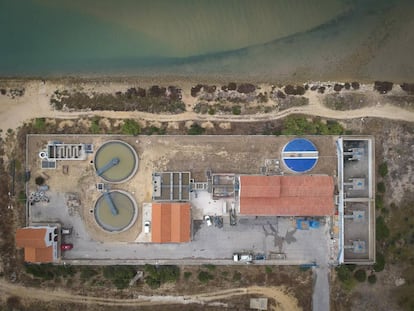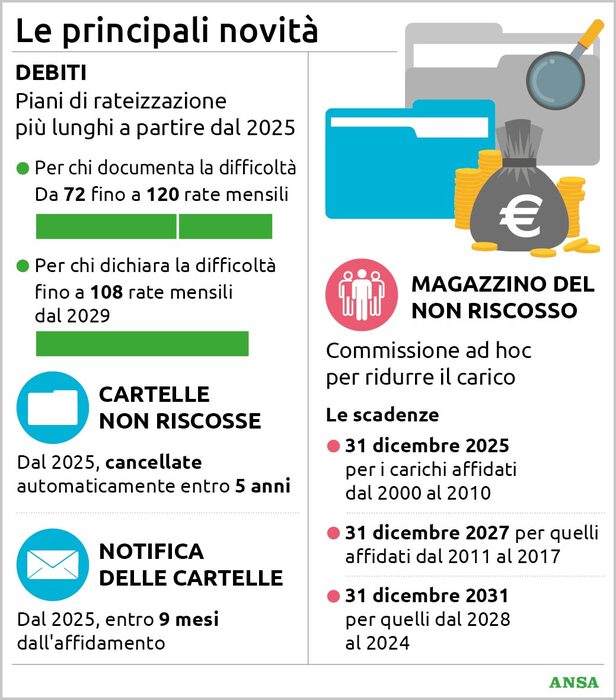Discharge of sewage on the Matalascañas beach, in Almonte (Huelva), last summer. José Manuel Albarrá
In the best scenario, Spain will continue to pay the millionaire European fine until 2025 for the lack of wastewater treatment in several municipalities.
But that is the best of horizons and new delays cannot be ruled out, much less, as has happened so far.
The fine – which already amounts to 62.96 million euros and which grows every six months as long as the breaches continue – was imposed by the Court of Justice of the European Union in 2018, when nine urban agglomerations of more than 15,000 inhabitants of the country continued discharging their wastewater without proper treatment.
When the ruling was made public, the central government presented a calendar in which it was stated that in four years the problem would be solved and all the treatment plants in those nine agglomerations would work correctly.
But it is already 2022 and the Executive now acknowledges in writing that full compliance will not come until at least 2025. This will mean that what is already the largest European fine that Spain has had to face will continue to get fatter for the next three years.
The new calendar is known thanks to the response of the Ministry for the Ecological Transition to a parliamentary question from the deputy of More Country-Green Equo Inés Sabanés about the purification problems in Spain.
The response from this department arrived on January 27 and indicates that the fine already reaches those 62.96 million.
In addition, it is added that it is expected that in 2025 "works will be completed" on the new purification station in the Huelva town of Matalascañas, an eminently tourist population center that, despite being located in the heart of Doñana, does not adequately treat its sewage.
Sewage discharges are common on the beach in this town.
Purification powers in Spain belong to the municipalities. But many times the City Councils do not have the budget to build or improve the treatment plants or to maintain them. On other occasions, there is no political will due to the rejection that the installation of this type of infrastructure arouses among some neighborhood groups. Faced with this situation, the central government and the autonomous communities have been declaring these works to be of state or regional interest so that they can be carried out in recent years. In the case of the Matalascañas plant, it was the State that assumed the infrastructure. But it was not until last December that an agreement was reached between the central government, the Junta and the City Council of Almonte (Huelva) to undertake this work.The cost will be around 30 million euros and the term for its execution and commissioning is three years, which will make it difficult for the treatment plant to be fully operational before the end of 2025.
The other sewage treatment plant with a considerable delay is the one that affects Alhaurín el Grande (Málaga).
Until last November, the Board, which is responsible in this case, did not award the treatment plant North of Malaga, which must solve the problem of Alhaurín and other municipalities in the area.
The amount of the work is around 100 million and the execution period is three and a half years, so it is also likely that it will not be fully operational in 2025.
The obligation for urban agglomerations to correctly purify their water before discharging it into the sea and rivers is included in a European directive that established 2001 as the date to comply with these requirements.
However, given the high degree of non-compliance, the Commission gradually granted different extensions to Spain.
The last one was until 2013 and at that time 17 urban centers were still not complying.
So Brussels went to the EU Court of Justice, which after a long process condemned the country in 2018 for the breaches in those 17 agglomerations to pay a fine of 12 million.
At the time of the ruling, four years ago, nine populations were still not complying, for which the court also established a six-monthly fine of 11 million until the waters are properly purified.
Aerial view of the treatment plant in Barbate (Cádiz) which, according to European justice, does not comply with community regulations. MARCOS MORENO
This amount of 11 million decreases depending on the degree of compliance.
At the moment, the European Commission has only certified that two of the nine agglomerations have complied with the directive: Tarifa (Cádiz) and Coín (Málaga).
In addition to Matalascañas and Alhaurín, there are still Barbate (Cádiz), Isla Cristina (Huelva), Nerja (Málaga), Gijón Este (Asturias) and Valle de Güimar (Santa Cruz de Tenerife).
According to the parliamentary response of the Government, "it is expected that throughout this year 2022, the European Commission will certify the compliance of the agglomerations of Nerja and Gijón East, with the entry into operation of the respective treatment plants and the consequent presentation of representative samples of the treated effluent as proof of compliance with the directive”.
Who pays?
In its response to Más País, the Executive recalls that "it is the municipalities that have their own powers in the treatment of wastewater", for which they must "provide sanitation and purification services by themselves or with the help of their autonomous community.
Based on this premise, the Executive has been transferring to the affected autonomous communities part of the fine of 62.96 million euros that Spain has had to pay.
Specifically, the State has taken charge of 32.7 million, the amount corresponding to the treatment plants declared of state interest.
The remaining more than 30 million have had to be faced by the regional governments.
Andalusia appealed against the agreement of the Council of Ministers by which its part of the sanction was passed on, arguing that it was the City Councils that should face the fines.
But the Supreme Court rejected in September this claim of the Board and forced the payment of its part of the fine.
When all treatment plants in these agglomerations are operational, the problem of urban wastewater in Spain will not be solved. Because European regulations establish that the 2,059 agglomerations of more than 2,000 inhabitants in Spain must correctly treat their wastewater. However, the current national purification plan, which dates from last July, indicates that 516 do not comply with what is established in the water directives, that is, 25% of the total. For this reason, Spain has five European files open at the moment —and another one could arrive shortly— which could also end in million-dollar penalties if non-compliance continues.
You can follow CLIMA Y MEDIO AMBIENTE on
and
, or sign up here to receive
our weekly newsletter





/cloudfront-eu-central-1.images.arcpublishing.com/prisa/ZUKHJYNBKFGELIR5I5JL4S2JY4.jpg)

